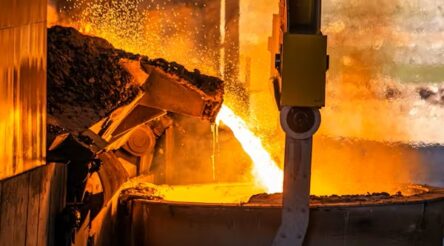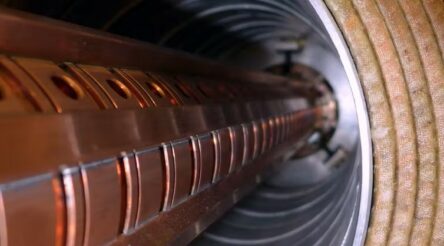Productivity Commission fails as others forge ahead – by Tim Buckley

In recent days @AuManufacturing readers have critiqued federal governments efforts to ‘reform the Productivity Commission (see below). Here in our final part of a series, Tim Buckley argues Australia cannot afford more of the same from the PC, which continued to misread profound societal and economic change underway globally.
Treasurer Jim Chalmers’ announcement yesterday of a new chair of the Productivity Commission can’t come a moment too soon. The Commission’s FY2022 Trade Review, released last week, entirely misses the mark.
In calling for Australia to ‘maintain the free trade rage' and decrying ‘poorly designed industry assistance', it mischaracterises efforts to deploy capital support and spending programs to rebuild Australian manufacturing and value-add our world-leading renewable resources pre-export as high-cost protectionism.
The report barely mentions the costs of the growing climate crisis.
This is a misreading of the implications for Australia of a profound global geopolitical shift already well underway – unprecedented government intervention by the US, the E.U., Canada, South Korea, Japan and a growing list of other economies to reposition themselves in the accelerating global energy transition, rebuild manufacturing onshore, and secure cleantech supply chains.
These imperatives have been brought to the fore by Putin’s invasion of Ukraine and China’s decade-long headstart in decarbonisation technology and manufacturing.
At this inflection point, Australia can ill-afford an approach to industry policy that will further
hollow out our manufacturing sector and consign us to the zero value-add, dig-and-ship
mentality of the fossil-fuel dominated Australian mining sector of old.
We must seize the once-in-a-century opportunity to leverage our natural advantages and position ourselves as a clean industry and export superpower. And as other economies have recognised, this
requires government investment.
The Productivity Commission’s ideology of free global trade seems, for example, to fail to recognise the significance of the massive stimulus of the >US$369bn US Inflation Reduction Act (IRA), the associated US$400bn Loan Program Office and the Infrastructure and Jobs Act – key planks of “Bidenomics”.
These all carrot, no stick subsidy programs are of unprecedented size, are turbocharging reindustrialisation, decarbonisation and cleantech in the US – from battery manufacturing to solar and wind – and expose the illusion of a capitalist marketplace thriving free of government assistance.
The success of these initiatives as engines of economic growth and prosperity is evidenced in investment bank Morgan Stanley’s assessment that Bidenomics is driving an unexpected US economic surge, a finding that underpins its sizable upward revision to US GDP forecasts.
The bank references “a boom in large-scale infrastructure', and a domestic business investment ‘rebound, led by manufacturing.” The White House confirms that Bidenomics has crowded-in over US$500bn of new private sector investment in under a year. And in its first 6 months since passage, the Inflation Reduction Act drove the creation of 100,000 new jobs, while actively embedding fair labour standards in emerging clean industries.
The US IRA is of immense importance to the accelerating global investment and technology ‘race to the top’.
It also brings a new era of protectionism and a revitalisation of trading bloc thinking – such as the QUAD – that the Productivity Commission seems asleep to.
The European Union’s Net Zero Industry Act, India’s Production Linked Incentives, Japan’s GX Roadmap and Canada’s landmark clean energy tax credits are all direct responses to China’s supply chain and manufacturing dominance and the IRA.
Just this week India announced it would block the world’s number one EV manufacturer, China’s BYD, from building a new US$1bn EV manufacturing facility in India, despite this being in partnership with India’s Megha.
This week saw South Korea announce a decade of corporate tax concessions to firms onshoring manufacturing, even as they lobby for Australia to just dig-and-ship.
And Germany announced a €2bn subsidy package of state subsidies to support Thyssenkrupp’s bid to
decarbonize its steel production, a key strategic threat to Australia’s world leading 38 percent
global share of iron ore and 55 percent share of coking coal exports.
The Productivity Commission fails to grasp the magnitude of the opportunity this picture presents to leverage Australia’s massive competitive advantage.
We have some of the world’s largest reserves of critical minerals, metals and energy transition materials that underpin global decarbonisation and the wholesale transformation of the world economy.
For example, Australia supplies 50 percent of the world’s total lithium to drive this global pivot, but
in 2022 captured a fraction of 1% of the total EV value chain. And we have unparalleled renewable energy potential.
We should, as a matter of urgency, be deploying our world scale, zero emissions, low cost renewable energy resources to power value-adding of our critical minerals onshore.
This will position us as a key player in the multi-decade EV-battery supply chain boom, as we help our
trade partners decarbonise their economies by exporting 'embodied decarbonisation' – materials processed and manufactured using our wind and sun.
Think green iron, greenaluminium and refined lithium hydroxide.
We can be a renewable and cleantech export superpower as the Sunshot 2023 Report, endorsed by the Business Council of Australia, highlights, estimating that renewable export opportunities have the potential to generate over $100 billion in gross value added and support over 400,000 good Australian jobs by 2040.
Australia exported $240bn of fossil fuels in 2022/23. However, fossil fuel commodity prices have more than halved into 2023, a harbinger of things to come.
This decline prefigures a major headwind to our trade profile that will only build as other countries accelerate their decarbonisation pathways and reduce their reliance on volatile and high emissions fossil gas and coal.
We fail to pivot to our energy and industry transition opportunity at our own peril.
Now is precisely the time to power up from a petrostate to a leading electrostate, as Alan
Finkel has argued; for bold reform and an ambitious domestic response to the massive
strategic national interest public subsidy programs of our trade partners and competitors at
a scale commensurate with that of Australia’s unique opportunity.
Public investment is critical to derisk Australian value-adding and catalyse private capital at a time of onerous and growing global policy interventionism.
The Climate Capital Forum has been calling for $100bn of strategic national interest public capital to crowd-in upwards of the $200-300bn of private investment needed to reindustrialise Australia’s economy, refocus our mining sector, and massively build out renewables, transmission and storage.
We can play a globally significant role in the accelerating energy transformation and benefit from an investment, employment and trade boom.
But leaving this to free markets means Australia will miss the boat, and abdicate its responsibility on climate.
Pretending this isn’t so shows the Productivity Commission is out of touch with the geopolitics of Bidenomics, and China’s global dominance of critical supply chains.
Their knee-jerk austerity is a recipe for irrelevance.
We hope now that new leadership at the Commission signals, as Treasurer Chalmers says, a revitalisation and renewal in which ‘the productivity opportunity for Australia is … to invest in human capital and the energy transformation'.
Tim Buckley is Director, Climate Energy Finance
Further reading:
The Productivity Commission’s new target – green industries ‘assistance’
Treasurer opts for tinkering with mostly ignored Productivity Commission
How can we refrom the PC when we can no longer even track productivity – by John Sheridan
Picture: Tim Buckley
@aumanufacturing Sections
Analysis and Commentary Awards casino reviews Defence Gambling Manufacturing News Online Casino Podcast Technology Videos





